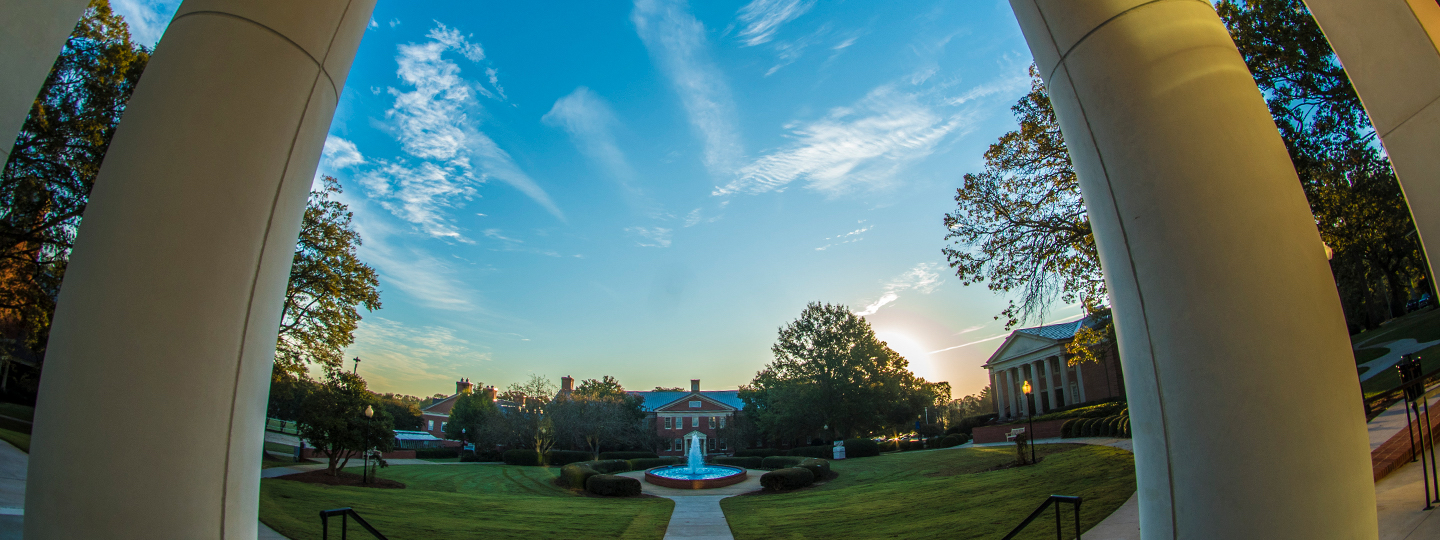PC tackles shortage of teachers serving students with special needs by re-establishing special education major

School districts nationwide – facing a chronic shortage of teachers serving students with special needs – have called, and Presbyterian College has answered.
PC’s education department is addressing this critical need by re-establishing its special education major in response to school administrators’ expressed difficulties finding qualified education teachers.
Associate professor of education Dr. Tammy Graham joined the PC faculty two years ago to coordinate the special education major. As far back as she can remember, there has been a shortage of special education teachers, and the demand for them has only increased over the years, she said.
“When I graduated with a degree in learning disabilities in the early 1990s, I had five job offers,” Graham said. “When I moved to a different state five years later, I again had multiple job offers. This is not unlike my students today. Our first two special education majors just graduated, and both had multiple job offers before receiving their diplomas.”
The job of a special education teacher is incredibly demanding. In addition to their regular classroom responsibilities, special ed teachers must meet rigorous state and federal standards and sufficiently document them.
“Every student who receives special education services must have an Individualized Education Program (IEP) that is reviewed annually in an IEP meeting,” Graham noted. “Depending on the needs of the students, some IEPs can be quite lengthy, and the teachers must follow the IEPs and specific timelines as required by the Individuals with Disabilities Education Act.”
Graham said some research suggests other factors – high caseloads, working conditions, insufficient training – have also contributed to the long-term shortage.
PC’s education department also learned firsthand the severe demand for special education teachers from peers in local and statewide districts. For nearly a decade, the department has welcomed educators to its annual Charles Chadwell Special Education Institute and heard the growing concerns from the stalwart teachers who serve students with special needs across the state. Local school district administrators, too, have shared their struggles finding new special education teachers to fill vacancies.
PC heard and responded – making the special education major available again to students who aspire to serve children.
“The special education major fits beautifully with PC’s motto, ‘While We Live, We Serve,’” Graham said. “In my opinion, the most effective special educators are the ones that not only have the ability to effectively individualize instruction and manage classrooms, they also are genuine individuals with service-oriented hearts.”
Graham knows firsthand the joys of being a special educator.
“The field of special education has been a part of my life for so many years,” she said. “It seems a natural part of who I am. However, when I think back on my experiences, one of the biggest rewards is witnessing students with exceptionalities experience joy and confidence when they accomplish something they and/or others did not realize they could achieve.”
Understandably, much hard work goes into becoming a special education teacher.
“PC’s education major is quite intense,” Graham said. “Our courses are aligned with two sets of standards from the Council for Exceptional Children – the Initial K-12 Special Educator Standards and the Early Interventionist/Early Childhood Special Educator Standards. The courses are also aligned with standards from the Council for the Accreditation of Educator Preparation and the Interstate Teacher Assessment and Support Consortium.”
In addition to taking the required courses for the major, teacher candidates must take and pass three licensure exams to become certified in Multi-categorical Special Education and Severe Disabilities, making them eligible to teach students with mild, moderate, and severe disabilities at every grade level, preschool through 12th grade. Graham said they can also add on elementary certification by taking an additional two courses and the elementary licensure exam.
“While we realize they will learn many things during their first few years of teaching, we want them to be as prepared as possible for their licensure exams and as prepared, capable, and comfortable as possible when they step into their first classroom,” she added.
To prepare them to be strong special educators, some of the activities they complete in the program include analyzing multiple case studies, drafting mock IEPs for students with different disabilities at different grade levels, and researching and designing various teaching activities. Teaching candidates also learn how to complete functional behavior assessments and intervention plans for students with behavior difficulties, and complete practicums that allow them to experience working with students with various exceptionalities at various grade levels.
“One part of preparing our teacher candidates to become effective special educators involves modeling,” Graham said. “We try to model not only differentiated instructional and classroom management strategies but also professionalism, mutual respect, positive relationship building, and kindness. We have high expectations of them and for them, and we genuinely care about them and want to help them succeed!”
Graham said she enjoys seeing the next generation of special education teachers discover the same accomplishments she witnessed throughout her career in the classroom.
“At PC, I have the opportunity to observe my students teach during their internships,” she said. “As a result, I continue to have the good fortune of witnessing similar types of accomplishments, and it never gets old.”
PC offers scholarship opportunities for special education majors thanks to the Charles Chadwell Endowment for Special Education. For more information about PC’s special education major, contact Graham at tjgraham@presby.edu.
